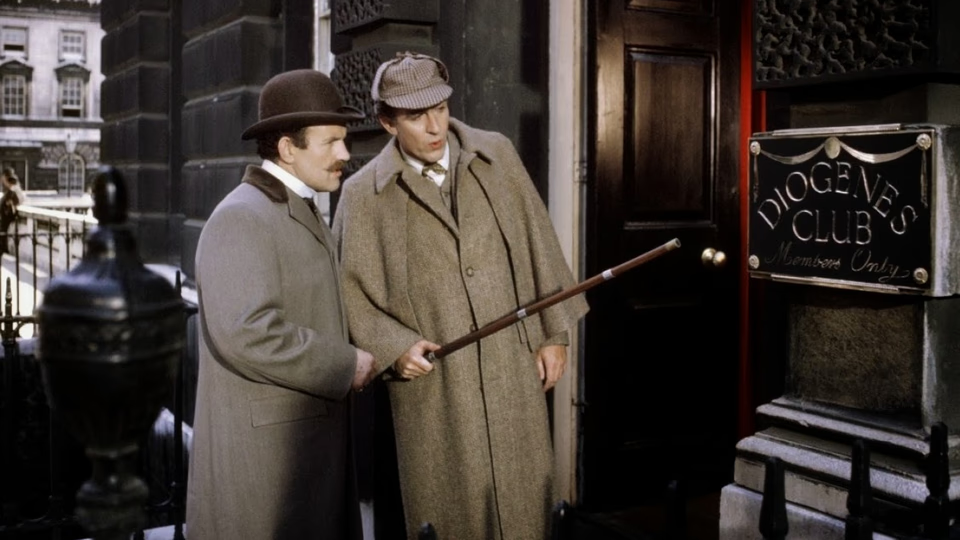The Private Life of Sherlock Holmes

Director Billy Wilder’s humanized portrait of Holmes and Watson as they help a mysterious woman find her missing husband.
The Private Life Of Sherlock Holmes is frustrating, chiefly because it’s greatest flaw—it’s pacing—is the direct result of a studio’s interference with a director’s vision.
Originally delivered as a three and a half hour movie with intermission, studio executives forced director Billy Wilder to cut the over an hour’s worth of footage to bring the running time down to 125 minutes. Unfortunately the cut footage has been lost through time, so we may never see the movie as Wilder intended, but as it stands The Private Life of Sherlock Holmes does deliver flashes of brilliance.
The first of these flashes comes in the cast which, with the exception of Colin Blakely’s Watson, was immune to the effects of the studio mandated edits. Robert Stephens is wonderful as Holmes and the always impeccable Christopher Lee is every bit his match as his brother Mycroft. Colin Blakely’s Watson suffers most from the editing, as most of his scenes are reduced to a Jack Lemmon-esque mania.
The production and cinematography are also brilliant, and almost allow the viewer to gloss over the awkward pacing. Almost.
You can’t expect to cut an hour out of a story and expect it to flow the same, especially when the talent behind the story is as considerable as Wilder, whose previous films had proven him a master storyteller. This single, crippling flaw destroys the movie’s potential and renders a potentially great film merely average.
If a restored version ever sees the light of day, The Private Life of Sherlock Holmes may be a great movie, but until it’s a beautifully acted and filmed collection of scenes that tell an underwhelming story.